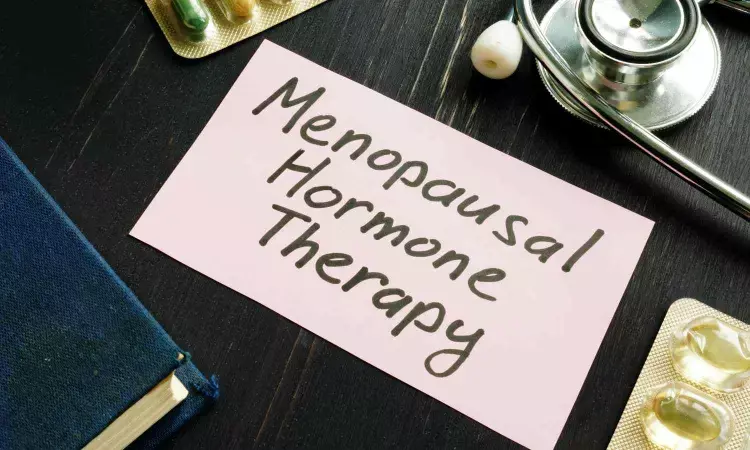- Home
- Medical news & Guidelines
- Anesthesiology
- Cardiology and CTVS
- Critical Care
- Dentistry
- Dermatology
- Diabetes and Endocrinology
- ENT
- Gastroenterology
- Medicine
- Nephrology
- Neurology
- Obstretics-Gynaecology
- Oncology
- Ophthalmology
- Orthopaedics
- Pediatrics-Neonatology
- Psychiatry
- Pulmonology
- Radiology
- Surgery
- Urology
- Laboratory Medicine
- Diet
- Nursing
- Paramedical
- Physiotherapy
- Health news
- Fact Check
- Bone Health Fact Check
- Brain Health Fact Check
- Cancer Related Fact Check
- Child Care Fact Check
- Dental and oral health fact check
- Diabetes and metabolic health fact check
- Diet and Nutrition Fact Check
- Eye and ENT Care Fact Check
- Fitness fact check
- Gut health fact check
- Heart health fact check
- Kidney health fact check
- Medical education fact check
- Men's health fact check
- Respiratory fact check
- Skin and hair care fact check
- Vaccine and Immunization fact check
- Women's health fact check
- AYUSH
- State News
- Andaman and Nicobar Islands
- Andhra Pradesh
- Arunachal Pradesh
- Assam
- Bihar
- Chandigarh
- Chattisgarh
- Dadra and Nagar Haveli
- Daman and Diu
- Delhi
- Goa
- Gujarat
- Haryana
- Himachal Pradesh
- Jammu & Kashmir
- Jharkhand
- Karnataka
- Kerala
- Ladakh
- Lakshadweep
- Madhya Pradesh
- Maharashtra
- Manipur
- Meghalaya
- Mizoram
- Nagaland
- Odisha
- Puducherry
- Punjab
- Rajasthan
- Sikkim
- Tamil Nadu
- Telangana
- Tripura
- Uttar Pradesh
- Uttrakhand
- West Bengal
- Medical Education
- Industry
Estrogen-progestin therapy may increase risk of heart disease and VTE, finds study

A new study published in the British Medical Journal showed that Tibolone or oral estrogen-progestin treatment use is linked to a higher risk of developing certain cardiovascular conditions. About 30% of all fatalities worldwide are caused by cardiovascular disease, making it the leading cause of mortality worldwide. Women are more likely than males to acquire cardiovascular illness, and this tendency increases noticeably throughout midlife, which is when the menopausal transition occurs.
A decrease in estrogen and an increase in follicle-stimulating hormone concentrations are the hallmarks of this shift. By encouraging angiogenesis and vasodilation, decreasing cardiac fibrosis and oxidative stress, and raising high density lipoprotein cholesterol levels, experimental research has demonstrated that estrogen protects cardiovascular health. Thus, Therese Johansson and team carried out this study to evaluate the impact of modern menopausal hormone treatment on cardiovascular disease risk based on hormone combination and delivery method.
This replicated target trial was based on a national registration. From 2007 to 2020, 919,614 Swedish women between the ages of 50 and 58 who had not used hormone treatment in the preceding two years were identified. From July 2007 to December 2018, 138 nested experiments were created.
8 treatment groups as oral combined continuous, oral unopposed estrogen, oral combined sequential, oral estrogen with local progestin, tibolone, transdermal unopposed female hormones, or non-initiators of menopausal hormone therapy were assigned to the women who had not used hormone therapy in the preceding 2 years based on the prescription registry data for that particular month.
A total of 8,42,102 women did not initiate menopausal hormone treatment, whereas 77,512 women did. With the intention-to-treat studies, this research discovered that tibolone was linked to a higher risk of cardiovascular disease than non-initiation. The individuals who started using tibolone or oral estrogen-progestin treatment had a higher chance of developing ischemic heart disease.
Oral continuous estrogen-progestin treatment, sequential therapy, and estrogen-only therapy were all linked to an elevated risk of venous thromboembolism. Tibolone was linked to an increased incidence of myocardial and cerebral infarction in per-protocol analysis.
While tibolone usage was linked to an increased risk of ischemic heart disease, cerebral infarction, and myocardial infarction but not venous thromboembolism, oral estrogen-progestin treatment use was linked to an increased risk of both heart disease and venous thromboembolism. Overall these results demonstrate the varied impacts on cardiovascular disease risk of various hormone combinations and delivery systems.
Reference:
Johansson, T., Karlsson, T., Bliuc, D., Schmitz, D., Ek, W. E., Skalkidou, A., Center, J. R., & Johansson, Å. (2024). Contemporary menopausal hormone therapy and risk of cardiovascular disease: Swedish nationwide register based emulated target trial. In BMJ (p. e078784). BMJ. https://doi.org/10.1136/bmj-2023-078784
Neuroscience Masters graduate
Jacinthlyn Sylvia, a Neuroscience Master's graduate from Chennai has worked extensively in deciphering the neurobiology of cognition and motor control in aging. She also has spread-out exposure to Neurosurgery from her Bachelor’s. She is currently involved in active Neuro-Oncology research. She is an upcoming neuroscientist with a fiery passion for writing. Her news cover at Medical Dialogues feature recent discoveries and updates from the healthcare and biomedical research fields. She can be reached at editorial@medicaldialogues.in
Dr Kamal Kant Kohli-MBBS, DTCD- a chest specialist with more than 30 years of practice and a flair for writing clinical articles, Dr Kamal Kant Kohli joined Medical Dialogues as a Chief Editor of Medical News. Besides writing articles, as an editor, he proofreads and verifies all the medical content published on Medical Dialogues including those coming from journals, studies,medical conferences,guidelines etc. Email: drkohli@medicaldialogues.in. Contact no. 011-43720751


